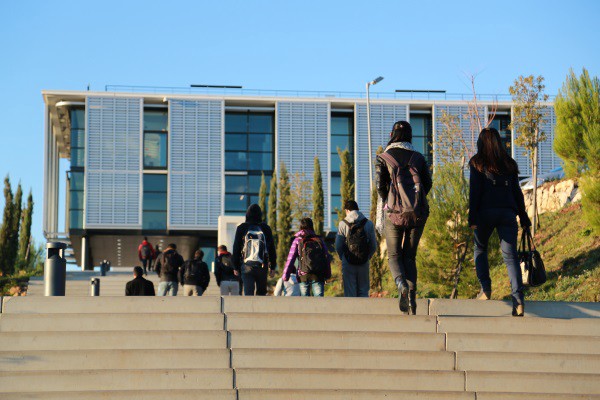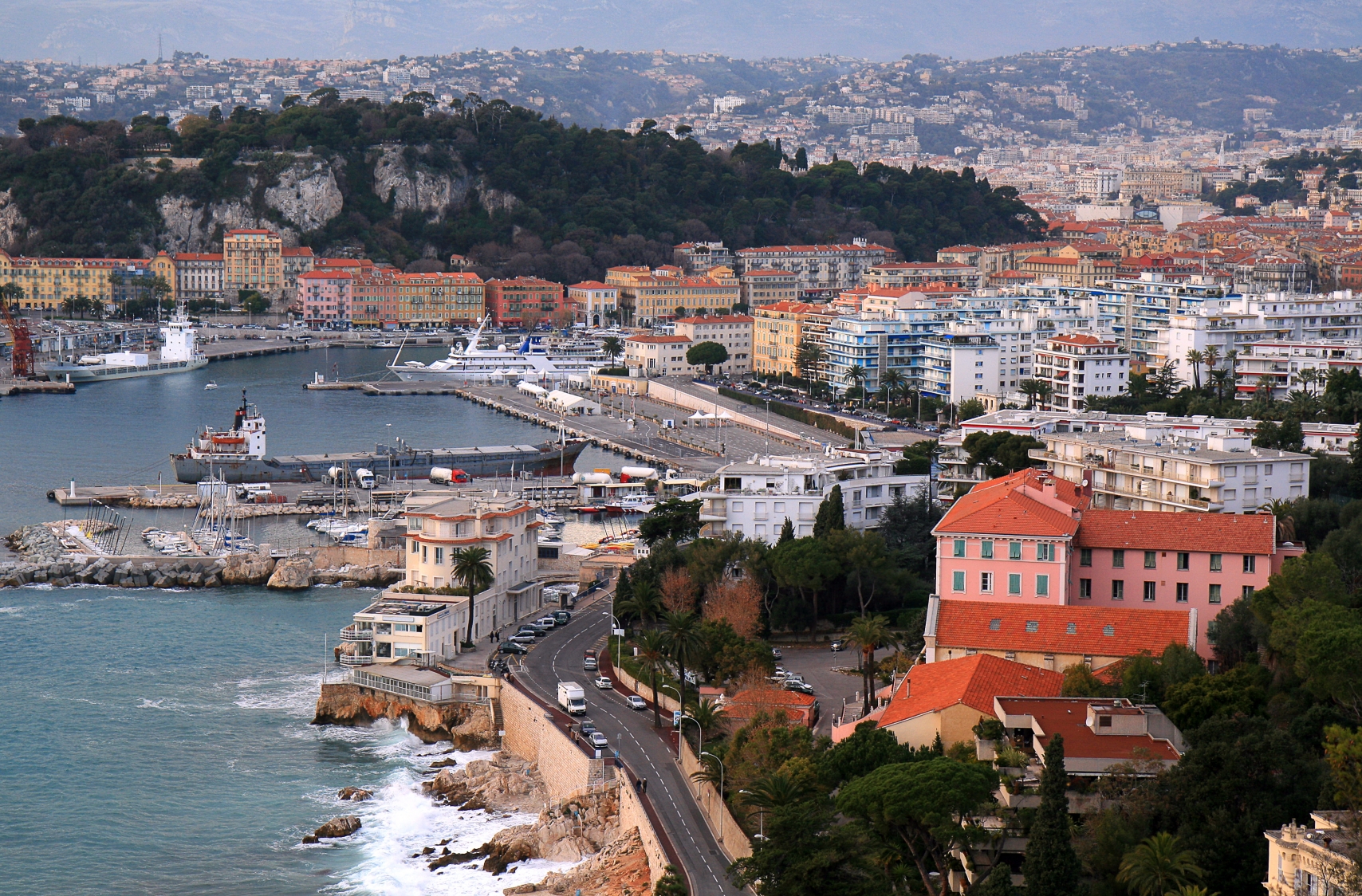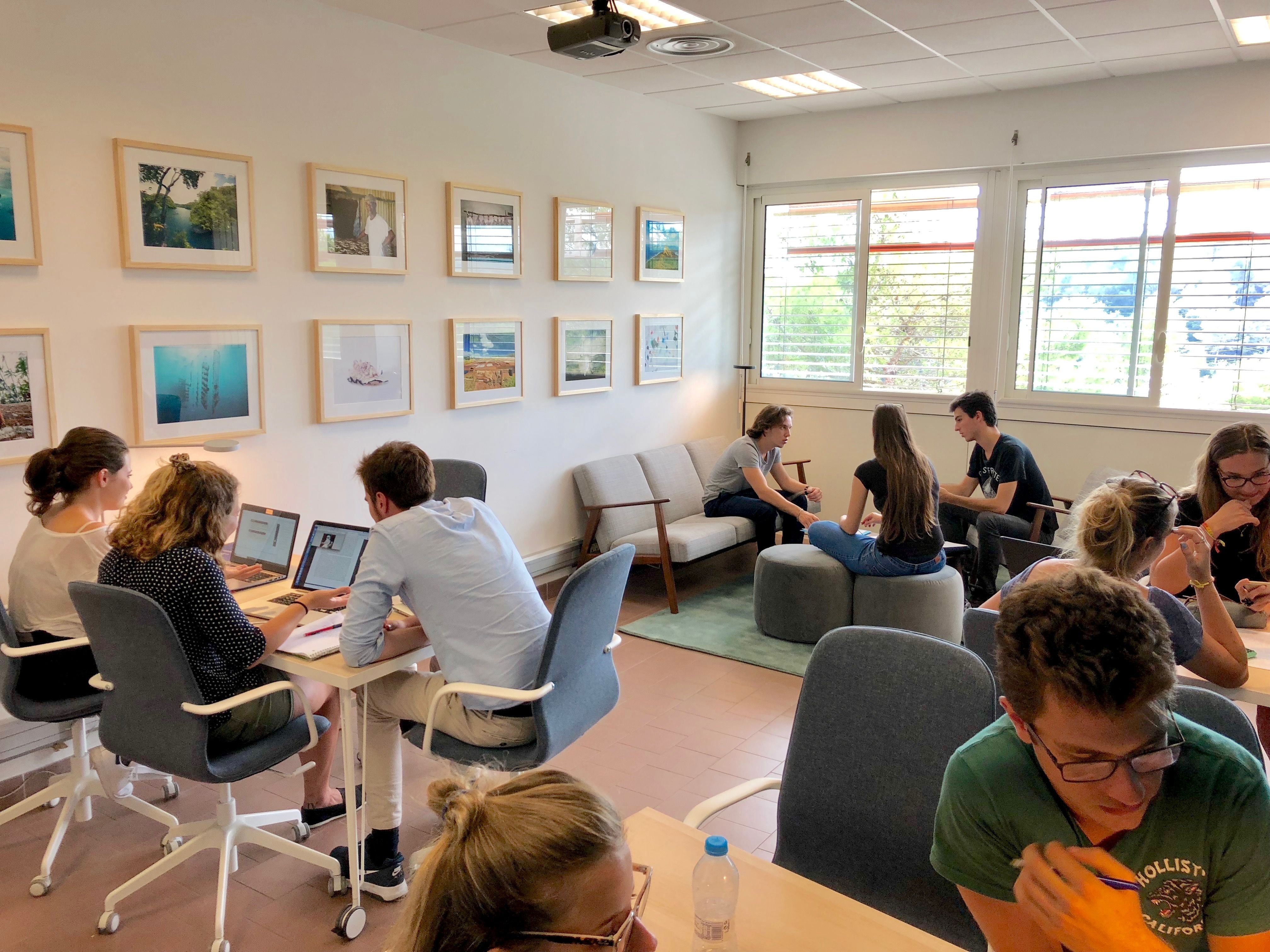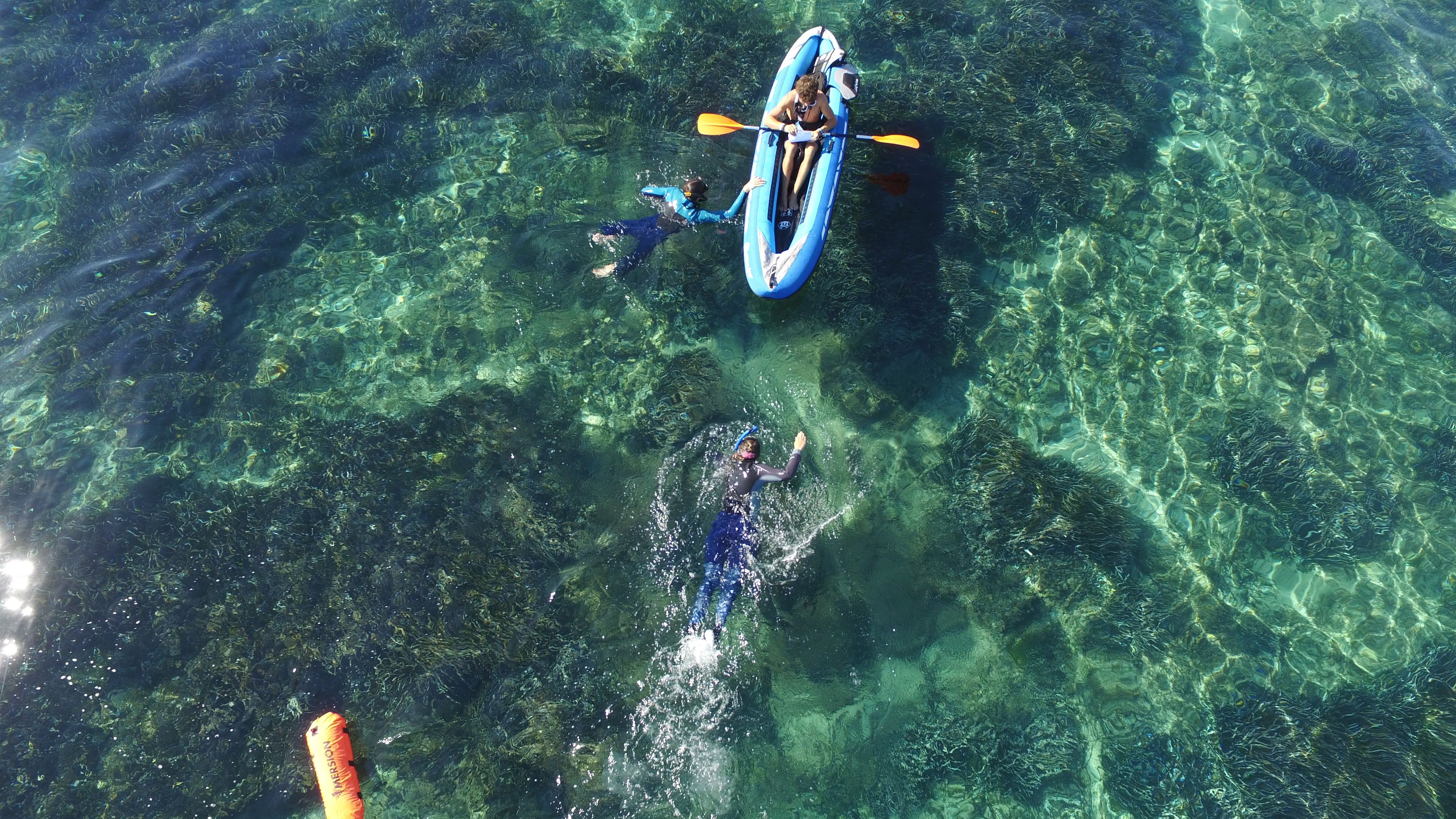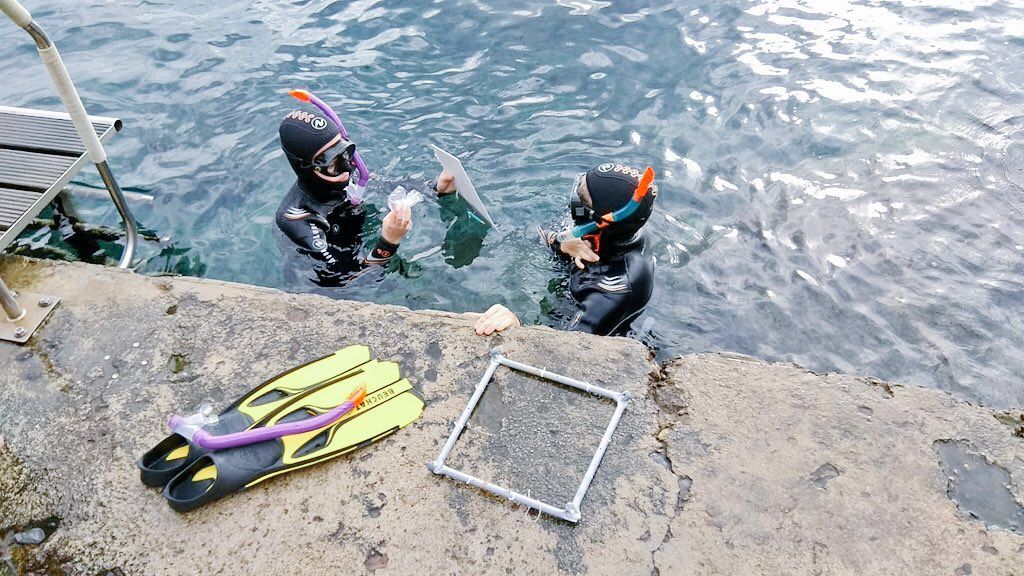University of Cote d'Azur
General Information
Open to Europe and the world, Université Côte d'Azur unites higher education and research players across the Côte d’Azur and acts as a driving force for regional development. We train committed and creative students, scientists, and entrepreneurial leaders, as well as enlightened citizens who contribute to the evolution of society. IMBRSea students on exchange at UniCA join the international community of the MSc MARRES, an interdisciplinary program in Ocean Science, Conservation & Innovation.
Our Federative Research Institute for Marine Resources brings together the multidisciplinary expertise of Université Côte d'Azur to advance knowledge on the functioning, maintenance, and sustainable use of marine resources. Around 120 scientists work within our laboratories on topics spanning ecology, environment, conservation, chemistry, biology, health, law, and economics. We collaborate closely at the regional level with Institut de la Mer de Villefranche, University of Corsica, and with Monaco and Italy. Most of our laboratories are also part of the International Associated Laboratory (LIA) "Response of Organisms and Populations to Environmental Stress", in partnership with the Centre Scientifique de Monaco.
Historically, our coastline became one of the world’s first modern seaside resorts. Initially a winter spa for the British upper class in the late 18th century, it later grew, thanks to the arrival of the railroad in the mid-19th century, into a cosmopolitan destination for international aristocracy. Today, the Côte d’Azur is home to a growing number of start-ups and SMEs linked to the ocean and land-sea interactions, driving blue sustainable development in fields such as aquaculture, biotechnology, tourism, blue carbon, and energy. Around the university, a dynamic socio-economic network is flourishing: local authorities (such as Nice Côte d'Azur Metropole and Région Sud), start-ups, SMEs, and non-profit associations all working together to promote and protect marine resources.
Housing
Most of the teaching will take place in the Luciole building on our Sophia Antipolis campus (1645 route des Lucioles, Sophia Antipolis). Sophia Antipolis is a technology park near Antibes, southwest of Nice, shared by companies in computing, electronics, pharmacology, biotechnology, and higher education institutions. Housing is possible within Sophia Antipolis (CIV and private residences, see below), but most students prefer living in the city centers of Antibes or Nice, which are well connected by public transport (see options below).
CIV options
The Centre International de Valbonne (CIV) is a very affordable and basic option, ideal for short stays. It includes a small bedroom with a bed, shared showers and toilets in the corridor, and full board: room, breakfast, dinner, and lunch (lunch is available only on Saturdays, Sundays, and public holidays). Note that cooking is not allowed (students must use the cafeterian) and that public transportation is limited in the evenings and on weekends. CIV is located at 190 Rue Frédéric Mistral, 06560 Valbonne (Sophia Antipolis), about 5 minutes by car, 10–30 minutes by bus, or a 30-minute walk from the Lucioles campus. The full package costs about 550–600 euros per month. Students can leave with one month’s notice.
More information on the CIV option will be sent to students a few months before arrival and is also available by contacting msc@univ-cotedazur.fr.
Private student residences
Private residences are more expensive (starting around 600 euros) but offer higher comfort. Options range from studios to 2-room apartments (17–40 m²), fully furnished and with additional services. Some residences charge application fees at the time of booking: always check the details carefully on each residence’s website.
A list of private residences will be shared with students a few months before arrival. Information is also available by contacting msc@univ-cotedazur.fr.
Note tgat like CIV, residences in Sophia Antipolis are located in the forest, which means access to Nice and Antibes may be less convenient.
Private residences
Most of our students prefer renting from private landlords or agencies in Nice (larger, lively, but further from campus) or Antibes (smaller, more village-like, but closer to campus).
- Studapart: an online platform with offers from verified landlords and agencies, managed by our contractor. Browse offers as a guest, then log in with UniCA credentials after registration: Studapart.
- Lokaviz: a national student housing portal managed by CROUS, offering a wide range of student accommodations. lokaviz.fr
General information (for options other than CIV).
In France, renting a home involves several formalities, both in public and private housing:
- Deposit (caution): usually one month’s rent (excluding charges). It covers potential damages and must be returned within two months after departure if the accommodation is in good condition.
- Guarantor: many landlords require a guarantor (acte de caution solidaire). Without one, applications may not be prioritized. The French State offers a Visale student rental guarantee to help students without a guarantor.
- Home insurance (assurance habitation): mandatory in France and required before keys are handed over. It covers risks such as fire, water damage, or explosion. Insurance can be purchased in Nice or online, often at low cost.
Living Costs:
- Meal in an inexpensive restaurant: €12.50
- Monthly food at the supermarket: €100-250
- Monthly pass of transportation: €30
- Utilities for a 85m² apartment: €120
- Room rent: €300-450
- Overall average costs: €700
Services
General information will be provided to the IMBRSea students during the welcome day.
Other information:
- Culture & Arts [FR]
- Sport
- Eco-responsible campuses and labs [FR]
- Information on health insurance, bank account, housing, visas…
Support Unit for Students with Disabilities
If you require special accommodation for exams (e.g. extra time, secretarial support, specialized equipment, individual rooms) and/or for your studies (e.g. note-taking assistance, tutoring, guidance, personal helpers), please contact: msc@univ-cotedazur.fr.
The dedicated support team will explain the steps to follow and provide the necessary documents to set up your arrangements.
Important: Please inform us as early as possible so that accommodations can be organized, validated, and implemented in time:
- Before the end of June for Semesters 1 and 3
- Before the end of November for Semester 2
Visa Information
Depending on your nationality and the duration of your stay, you may need to obtain a visa to study in France.
- If you are a citizen of the European Economic Area (EEA) or Switzerland, an identity card is sufficient – no visa is required.
- If you are a national from outside the EEA or Switzerland, you must apply for a visa through the French Consulate or Embassy in the country where you currently reside. Make sure your passport is valid for at least the entire duration of your stay.
Types of student visas
- VLS–TS Student Visa (Visa long séjour valant titre de séjour)
- Duration: 4 to 12 months
- For studies at a higher education institution in France (minimum 4 months).
- Normally valid for one year and renewable.
- Holders of a VLS–TS visa marked “étudiant” are exempt from applying for a residence permit in the first year.
- You will need to complete the OFII formalities upon arrival to validate your visa. If not, your visa will become invalid. This visa can be extended if you continue your studies in France, including master thesis.
- VLS–T Visa (Visa long séjour temporaire)
- Duration: 4 to 12 months
- For studies in France of up to one year.
- This visa does not require OFII formalities and cannot be extended in France.
Université Côte d’Azur will provide you with a letter of acceptance, which serves as proof of your participation in an exchange program in France.
More on Information on health insurance, bank account, housing, visas…
Exams
At Université Côte d’Azur, courses use a variety of assessment methods, including written exams, assigned papers, mixed workshops, and oral examinations. There is a balance between group and individual work, as well as between continuous assessment and final exams. The exact type of examination depends on the subject and is specified in the course description. Full details are provided at the start of each module.
- Grading scale (out of 100):
- 60 = Pass (IMBRSea equivalent: 10/20)
- 70 = Fair (IMBRSea equivalent: 12/20)
- 80 = Good (IMBRSea equivalent: 14/20)
- 90 = Excellent (IMBRSea equivalent: 17/20)
To pass the academic year and graduate with a local UniCA degree, students must achieve an average of 70/100.
Plagiarism is strictly prohibited and may lead to failing grades or even expulsion.
Most exams are computer-based and use the UniCA e-learning platform. Students will need a laptop and will be able to access exams, feedback, and grades online throughout their stay at UniCA.

